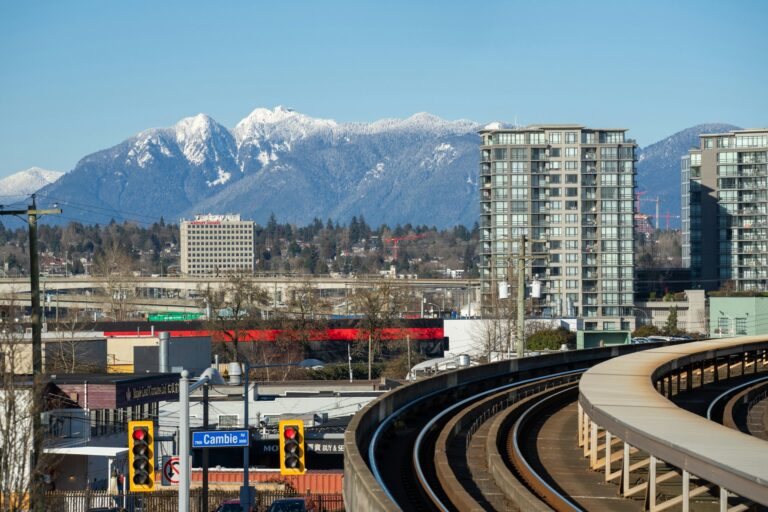This land is your land, this land is…wait, did anyone actually check the title? Canadian real estate got more bad news this month—the BC Supreme Court has ruled Cowichan Tribes still hold title to 1,846 acres of prime Richmond land in Greater Vancouver. The longest trial in Canadian history only targeted government-held lands, but may have a much wider impact, setting a precedent that could reshape property law.
Cowichan First Nations Claim Nearly 6% of Richmond, BC
The lawsuit was launched by First Nations groups to assert ownership over 1,846 acres on Lulu Island—including privately held and submerged lands—about 5.8% of Richmond, BC. They argue the exclusive occupation of the territory pre-dating British assertion of sovereignty, with no treaty, purchase, or surrender demonstrating transfer. The First Nations group explicitly targeted Crown or city-held lands, and the ruling notes they were not seeking the court to invalidate or annul private property titles.
The case is called the Cowichan Tribes v. Attorney General of Canada due to the federal government’s fiduciary responsibilities. The conditions make them responsible for the “Indians, and Lands reserved for the Indians.” The federal government’s constitutional role is to deal with treaty agreements, but there was none here.
The actual list of defendants was much longer, and includes two First Nations groups opposing the claim due to overlapping territorial assertions:
- Canada (attorney general)
- British Columbia (attorney general), also considered a Crown government
- The City of Richmond, where much of the land is located
- Vancouver Fraser Port Authority (VFPA)
- Musqueam Indian Band
- Tsawwassen First Nation
After a trial lasting 513 days over 5 years, the judge ruled in favor of the Cowichan First Nations. The Aboriginal title wasn’t extinguished, making Crown land grants invalid and the fee simple titles granted defective. The judge ordered an 18-month suspension of their ruling to conduct good-faith negotiations and an orderly resolution.
Whoops! No Treaty, No Sale—Unlike Most of Canada, 95% of BC Was Never Secured By Treaty
Canada’s controversial treaty system is one of the key issues at play, and not in the way most would assume. Canada is covered by a patchwork of historic and modern treaties that outline the terms of land acquisition and compensation. They generally state that Indigenous Nations cede land to the Crown “forever,” in exchange for compensation, reserves, annual payments, and vaguely stated limited rights.
There are a lot of reasons these treaties are arguably invalid—vague terms, land traded by those without title, and a lack of free and informed consent required by Canadian law, are the biggest ones that come up. However, this isn’t the issue in this situation—the Crown didn’t bother with a Treaty here.
Just 5% of BC is covered by historical treaties, with most of that land in the northeast. The remaining 95% of BC isn’t covered by any agreement, including nearly all of southern BC, Vancouver Island, and the Lower Mainland. For some reason the Federal government secured most of Canada under treaty, then just gave up on BC—a running theme if we’re being honest.
The lack of treaty agreement set the basis for the precedent-setting 2014 Tsilhqot’in Nation case. The Supreme Court of Canada affirmed the Aboriginal title continues to exist where Indigenous groups can prove exclusive historic occupation of a land that hasn’t been extinguished by treaty or law.
This stands in sharp contrast to regions like Ontario, where the British Crown claimed ownership of Toronto with the Toronto Purchase in the late-1700s. It even revised the agreement in 1805, and when the 1805 agreement was considered too vague by Canada’s modern settlement claims process, reviewed and formally settled again in 2010. In 2010, Canada agreed to pay the Mississaugas $145 million to agree on formal boundaries. Not a bad deal—that’s less than 145 new condo apartments, right?
Canadian Land Ownership Can Dramatically Change With Ruling
The case’s 863-page ruling can drastically change the legal landscape of land ownership. This was the first time a Canadian court ruled that Crown grants on Aboriginal title are defective in law. Even though the court explicitly stated this doesn’t invalidate homeownership, it found the fee simple titles granted by the Crown in those areas are defective and invalid.
Today’s homeowners are safe, but the court confirmed Aboriginal title can exist over privately owned land—and that’s a door no one’s closed. Even if the court doesn’t order expropriation of private homes, it undermines private ownership. The finding also sets a precedent for large areas in 95% of BC without treaty agreements, and potentially impacts similar situations in other provinces. This creates legal uncertainty, which property markets don’t like—a clear title is important for loans secured against land (i.e., a mortgage).
The Cowichan First Nations’ goal was reclaiming government-held lands, not individual owners. The immediate fight is between the Crown and the First Nations. Still, by affirming that Aboriginal title can exist over privately owned land, the ruling leaves the door open for future claims affecting homeowners. Governments prefer to negotiate shared use or compensation rather than accept displacement, but the possibility remains. Especially if a party isn’t just seeking government-held lands, like the Cowichan did.
Governments Planning Appeal, Land Ownership Laws Unclear
The Government of BC has already announced its plans to appeal the ruling, on the basis it has implications for property rights and requires more clarity on land ownership.
“We disagree strongly with the decision. British Columbia will be filing an appeal and seeking a stay to pause implementation until the appeal is resolved,” wrote Niki Sharma, Attorney General of BC.
Strongly disagreeing isn’t enough for an appeal—the province has to find an error in judgment or the misapplication of law or legal principles. That means the appeal will focus on brand-new questions about the conflict of Aboriginal title and private property.
